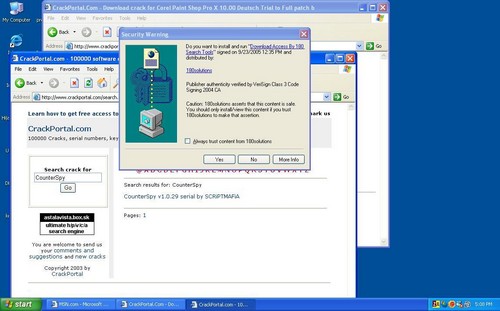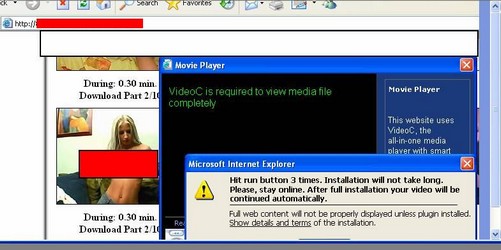Will Sony BMG music go the same way?
Here’s what’s hard for me: I’m a huge fan of Sony electronic products. I buy everything Sony. I have great respect for the consistent quality, reasonable prices and their incredible commitment to responsible environmental policies. Unlike some others, I will not boycott Sony electronics products over this stink.
Maybe it’s because Sony BMG isn’t actually the Sony you and I know. It is a joint venture between the massive Bertelsman Group and Sony. The chairman, Rolf Schmidt-Holtz, is a Bertelsman guy. Michael Smellie, their COO, is a former Bertelsman exec. Luddite of the Year Thomas Hesse, BMG’s President of Global Digital Business, is also a friggin Bertelsman guy right out of Bertelsman’s Worldwide Headquarters in Gutersloh, Germany (more on him later). And Andrew Lack, the CEO, is a former NBC News guy.
In other words, we’re not talking about people like Sony Chairman Nobuyuki Idei, a very cool and very smart guy.
Here’s what he said a couple of years ago:
The music industry has been spoiled. They have controlled the distribution of music by producing CDs, and thereby have also protected their profits. So they have resisted Internet distribution. Six years ago I asked Sony Music to start working with IBM to figure out how to offer secured distribution of their content over the Net. But nobody in Sony Music would listen. Then about six months ago, they started to panic. They have to change their mindset away from selling albums, and think about selling singles over the Internet for as cheap as possible—even 20 cents or 10 cents—and encourage file-sharing so they can also get micro-payments for these files. The music industry has to re-invent itself, we can no longer control distribution they way we used to. Most entertainment executives understand this, but how to exactly execute on this model is more difficult.
He said this in 2003. When he says “6 years ago”, he’s talking about somewhere around 1998/1999 when he first started pushing his own people to get with the picture. And $.10–$.20 per download? He gets it.
But the BMG guys obviously didn’t. Thomas Hesse said the most stupid thing he could have on NPR, when he said “Most people, I think, don’t even know what a Rootkit is, so why should they care about it?” (if you haven’t heard him say this, just spend a few minutes listening to this NPR story).
In this age, things snowball FAST. Here’s what Sony BMG is at risk of seeing happen:
1. People don’t buy the product because of all the bad PR. I mean, Rootkit — that’s a scary word!
2. Artists, appalled by these kinds of reviews, don’t sign with the label. Screw it, they can’t handle the pain themselves. They are, after all, human.
3. Idiotic statements like the one made by the president of Sony BMG just piss off people who would have been willing to give Sony a break
By the way, we’ve tested this Rootkit and it’s actually easy to override. Just hold the shift-key when putting in your CD to disable auto-run (see other pointers here). Then rip your CDs with pleasure. And Sony’s remover actually worked fine in our tests. (I know, I know, you’re still pissed, but I wanted to make the point to be fair.)
Well, Sony BMG dudes: This has the rage of the Internet and I think a few of you need to check into Spago for some R&R and some deep thinking…
You either need to immediately cancel all DRM on all CDs or your business is at serious risk of disappearing.
And that means you go back to Gutersloh!
Alex Eckelberry


